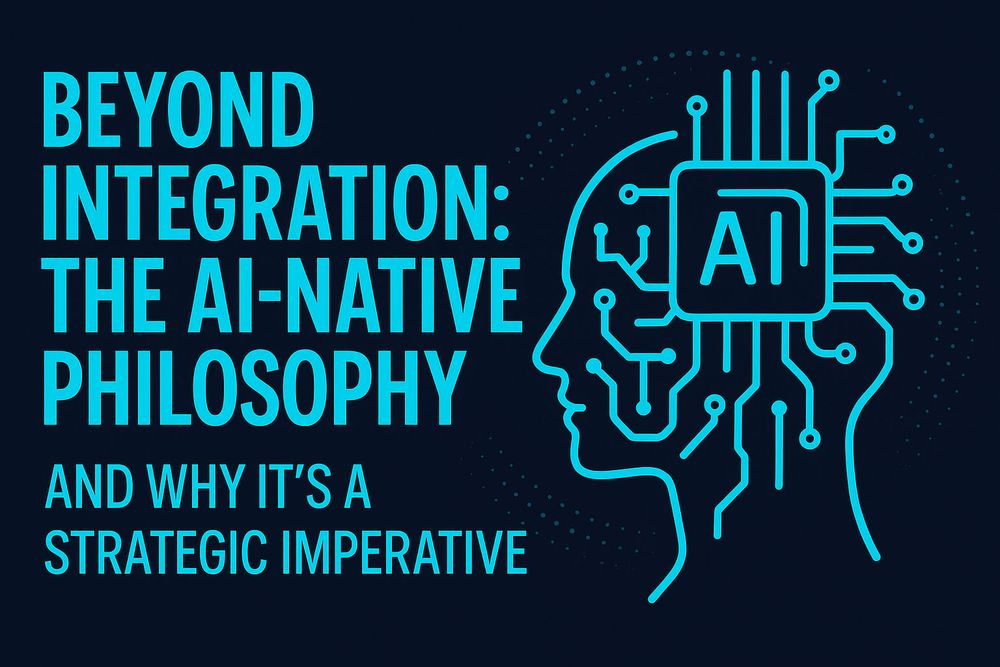Beyond Integration: The AI-Native Philosophy and Why it's a Strategic Imperative

Beyond Integration: The AI-Native Philosophy and Why it's a Strategic Imperative
In the digital era, the imperative for companies to become "AI-driven" has become a universal truth. However, the path to this transformation is often misunderstood and, consequently, mismanaged. Many organizations, constrained by legacy infrastructure and traditional business models, approach AI as a mere bolt-on solution. They treat it as a tool to be integrated into existing processes, a patchwork approach designed to fix a symptom rather than address the underlying systemic issues. This strategy, while seemingly pragmatic, is fundamentally flawed. It creates technical debt, limits scalability, and prevents a business from truly unlocking the exponential power of artificial intelligence. It's the difference between adding a jet engine to a horse-drawn carriage and building a rocket from the ground up.
At Neural Surge AI, we champion a philosophy we call "AI-Native"—a paradigm where intelligent systems are not an afterthought, but the foundational architecture upon which the entire business is built. This is a profound shift in mindset, a move from thinking "How can we use AI to optimize our existing process?" to asking, "How would we design this process if AI were its core component from day one?". This first-principles approach allows us to architect solutions that are inherently more efficient, scalable, and intelligent. It eliminates the friction of integrating new technologies into antiquated systems and fosters a holistic, synergistic ecosystem where data flows seamlessly, insights are generated in real-time, and every operational decision is informed by an intelligent system. We are building the next generation of businesses by treating AI not as a feature, but as the very operating system of the enterprise.
Our AI-Native philosophy manifests in every stage of our product development lifecycle. We begin by deconstructing a client's challenge to its most basic components, stripping away assumptions to identify opportunities for intelligent design. For instance, in a supply chain, we don't just build a model for demand forecasting; we re-architect the entire supply chain around a predictive and adaptive AI. This AI can learn from historical data, dynamically adjust to real-time market shifts, and autonomously optimize logistics, creating a self-correcting and highly resilient system. This creates a lasting competitive advantage that cannot be replicated by simply layering a machine learning model on top of a legacy system. The AI-Native approach is not just an efficiency hack; it's a strategic imperative for any company that wants to lead, not just compete, in the future. It's the difference between marginal gains and transformative leaps.
